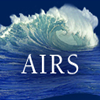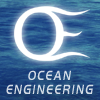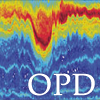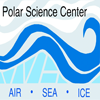| Our Departments |
|
|
|
|
|
|
|
APL-UW is organized into eight scientific and technical departments. The ability to turn ideas and hypotheses into experiments, field programs, and new instrumentation relies on the composite expertise of many science and engineering disciplines. The Laboratory owes its success to the synergy created by investigators and technicians working across these departments and their commitment to basic and applied research.
|
Acoustics
|
|

|
|
The Acoustics Department studies the propagation and scattering of sound in the ocean. Historically, its primary focus was to study the ocean and ocean structures using theory, numerical modeling, and field experiments; current research is expanding to areas of non-ocean acoustics.
|
|
Air-Sea Interaction & Remote Sensing
|
|

|
|
The AIRS Department is a diverse group of scientists, engineers, technicians, and students that conducts research on the air-sea interface using a variety of remote sensing techniques. Interests range from global scale climate change and ocean circulation to the smallest scales of the physics of air-sea heat and gas exchange.
|
|
|
|
Center for Industrial & Medical Ultrasound
|
|

|
|
The Center is a world-class leader in ultrasound research and development. Its talented, multidisciplinary staff of physicists, mathematicians, engineers, technicians, and students works with a wide variety of researchers and medical professionals around the world to advance the expansion of the field.
|
|
Electronic & Photonic Systems
|
|

|
|
The department develops and builds state-of-the-art solutions for challenging problems faced by the U.S Navy, provides engineering solutions for the installation and support of cabled ocean observatories, and explores the applications of photonics.
|
|
Environmental & Information Systems
|
|

|
|
The EIS Department has three core research areas: acoustics and signal processing, environmental sensing and modeling, and information and control systems. Expertise is applied to the needs of the Department of Defense, other federal agencies, and industry.
|
|
|
|
Ocean Engineering
|
|

|
|
APL-UW ocean engineers have a half-century reputation for delivering science and technology expertise at sea. The department serves as a resource to scientists at APL-UW, the University of Washington, other research and development organizations, and the U.S. Navy.
|
|
Ocean Physics
|
|

|
|
OPD investigators pursue research focused primarily on small-scale and meso-scale oceanographic processes, design and build unique instruments to facilitate these studies, and educate graduate and undergraduate students through instruction and employment.
|
|
Polar Science Center
|
|

|
|
The Polar Science Center is a group of dedicated investigators conducting interdisciplinary research on the oceanography, climatology, meteorology, biology, and ecology of the ice-covered regions on Earth and elsewhere in the solar system.
|
|
